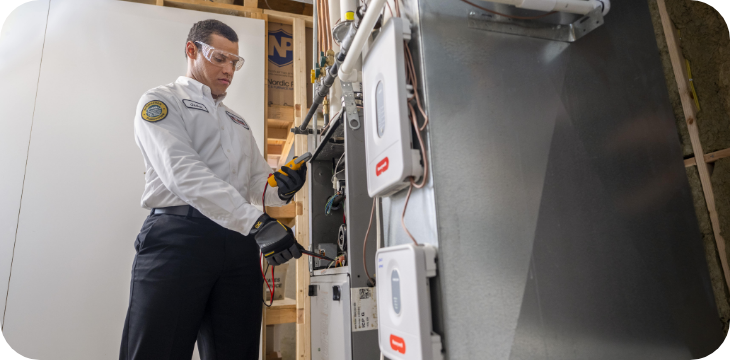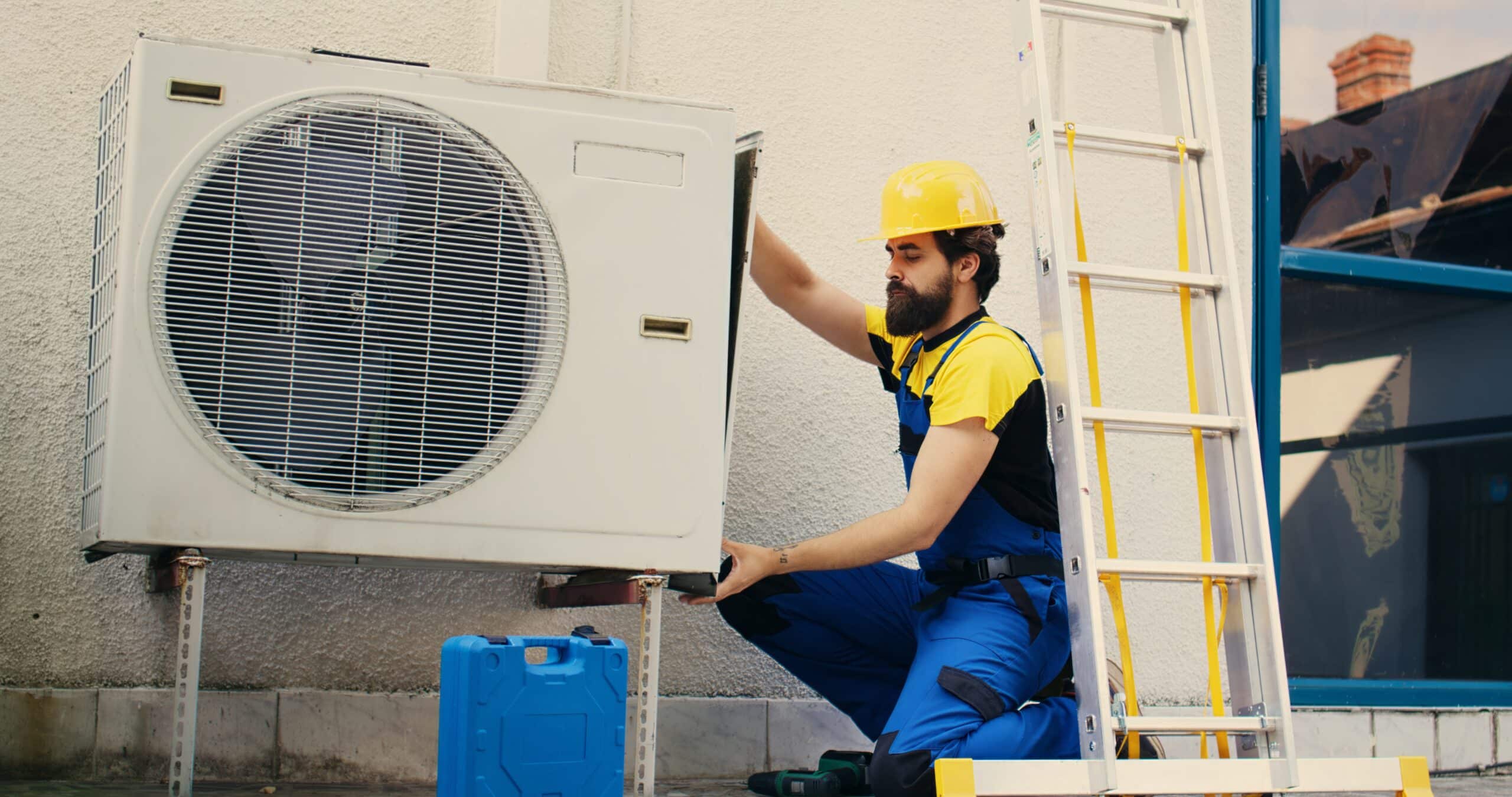Schedule Your HVAC Checkup Today with DMAKS HVAC Experts.
Schedule Your HVAC Checkup Today with DMAKS HVAC Experts.
Blog Article
Just How to Pick the Right Cooling And Heating System for Your Demands
Picking the proper a/c system is an essential choice that needs cautious consideration of various factors. Begin by evaluating your home's size, format, and one-of-a-kind needs, as these components determine the required capability and setup of the system. In addition, developing a budget that incorporates installation and long-lasting operational costs is vital. As you evaluate your alternatives, recognizing power effectiveness ratings and the effects of your regional climate will certainly play a significant duty in your option. However, the myriad of system kinds available can complicate this procedure, leading one to question which course eventually leads to optimum comfort and performance.
Assess Your Home Dimension
Examining your home dimension is a crucial first step in selecting the suitable A/c system. A Cooling and heating system that is also tiny will certainly battle to keep comfy temperature levels, leading to boosted power usage and wear on the unit.
To accurately assess your home size, gauge the square video of each area, taking into consideration elements such as ceiling height and the layout. Additionally, take into consideration the insulation top quality and the variety of windows, as these aspects affect thermal performance. Residences with open flooring plans may call for various system setups compared to those with many separated rooms.
Making Use Of the Manual J lots estimation technique can offer a more specific quote of your heating and cooling needs. This approach represent various factors, consisting of regional climate, solar gain, and tenancy patterns. By very carefully assessing these aspects, you can make certain that your selected heating and cooling system is suitably sized, causing enhanced convenience, energy efficiency, and long life of the devices.
Determine Your Budget Plan
Identifying your budget is a pivotal step in the HVAC system option procedure, as it establishes the specifications for your options - DMAKS HVAC. A HVAC system is a substantial financial investment, and comprehending your economic restrictions will certainly help narrow down selections that fit within your ways
Begin by evaluating not just the preliminary purchase price yet likewise setup expenses, which can vary substantially depending upon the complexity of the task. Additionally, take into consideration ongoing expenditures such as maintenance, fixings, and energy intake. A system might show up budget friendly at first however can lead to higher expenses with time if it is less effective.
It is recommended to designate a contingency fund for unforeseen expenditures that might develop during installation or preliminary system modifications (DMAKS HVAC). Furthermore, discover funding options or discounts that might be available, as these can alleviate the concern of ahead of time expenses
Eventually, having a clear budget allows you to engage with HVAC experts a lot more efficiently, ensuring you obtain customized recommendations that lines up with your monetary goals and home demands. By being thorough about your budget plan, you can make educated choices that improve comfort without jeopardizing monetary stability.
Evaluate Energy Effectiveness
Power effectiveness plays an essential role in the total performance and cost-effectiveness of your HVAC system. When choosing a system, it is crucial to consider its energy pop over to this web-site efficiency scores, as these numbers straight influence your utility bills and ecological footprint. Try to find systems with a high Seasonal Power Performance Proportion (SEER) for cooling down and a high Annual Fuel Usage Effectiveness (AFUE) ranking for home heating. Higher rankings show better performance, suggesting even more convenience for less power usage.
Additionally, think about the Energy Star certification, which signifies that the system satisfies stringent performance guidelines established by the Epa. Purchasing an Energy Star-rated a/c system can result in considerable savings over time, especially in areas with severe temperature variations.
An additional element to examine is the system's dimension and capability. An extra-large or small system can lead to ineffectiveness and raised energy costs. DMAKS HVAC. Proper sizing, commonly determined through a Hands-on J load calculation, makes certain that the system runs at optimum efficiency


Take Into Consideration Environment and Atmosphere
When choosing a HVAC next system, it is critical to take into consideration the regional climate and ecological conditions, as these factors significantly affect the system's efficiency and performance. Different areas experience differing temperature extremes, moisture levels, and seasonal changes, all of which influence heating and cooling down demands.

In visite site addition, regional ecological factors, such as air quality and possible irritants, must notify your choice. Equipments outfitted with innovative filtration technologies can assist minimize pollutants and provide cleaner air. Additionally, consider the energy sources readily available in your area-- some heating and cooling systems are extra effective when powered by natural gas or renewable energy resources.
Eventually, straightening your a/c system selection with your regional climate and ecological considerations will lead to enhanced comfort, improved efficiency, and lower power expenses.
Explore System Kind and Features
As property owners seek to enhance convenience and performance, discovering the various kinds of a/c systems and their special attributes comes to be vital. The main types of cooling and heating systems consist of central air, heat pumps, ductless mini-split systems, and heating systems. Each system uses distinct benefits customized to different demands and preferences.
Central air conditioning systems provide consistent cooling throughout a home, making them ideal for bigger areas. Heat pumps act as both heating and cooling down services, utilizing electrical power to transfer heat, which can result in reduced power expenses. Ductless mini-split systems are coming to be increasingly popular as a result of their flexibility and simplicity of installment, enabling homeowners to regulate the temperature level in individual spaces without comprehensive ductwork.

Conclusion
To conclude, choosing the ideal cooling and heating system requires mindful factor to consider of various variables, consisting of home size, budget plan restraints, energy efficiency, local environment, and readily available system kinds. A comprehensive assessment of these components makes certain ideal convenience and cost-effectiveness. By complying with an organized technique, property owners can make informed decisions that straighten with their specific demands and choices, eventually leading to enhanced interior air top quality and energy cost savings.
Report this page